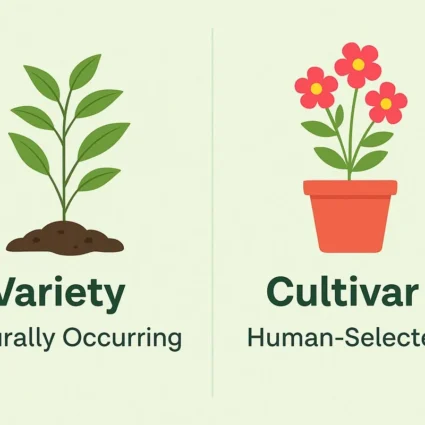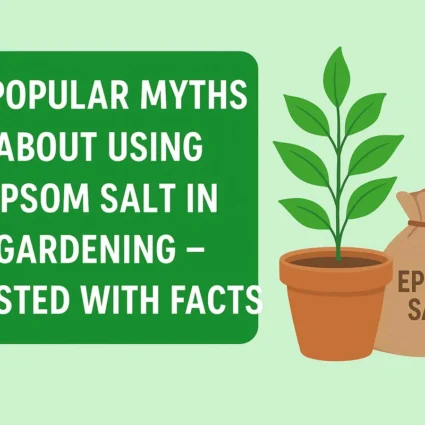
What Are The Reasons For Pest Attack In Plants
Plant pests are a significant concern for farmers, gardeners, and enthusiasts alike. The presence of pests can harm the health and productivity of plants, leading to reduced crop yields, stunted growth, and even plant death. Understanding the reasons behind pest attacks is crucial to effectively prevent and manage these problems. This blog post will explore some of the critical factors contributing to plant pest attacks.
Also Read This :How To Prevent Garden Soil Erosion In Rainy Season
Reasons For Pest Attack In Plants
- Lack of biodiversity
- Weak plant health
- Environmental conditions
- Lack of pest monitoring and early detection
- Lack of biodiversity
- Lack of integrated pest management
Lack of biodiversity
One of the primary reasons for pest attacks on plants is the lack of biodiversity in the surrounding environment. Monoculture farming practices, where large areas are planted with a single crop, create ideal conditions for pests to thrive. When problems find a vast, uninterrupted food source, they can quickly reproduce and spread, causing extensive damage. Promoting biodiversity, such as by implementing crop rotation and intercropping techniques, can disrupt pest life cycles and reduce the likelihood of infestations.
Also Read This :Seed Selection : A Guide to Choosing the Perfect Seeds for Your Vegetable Garden
Weak plant health
Weak or stressed plants are more susceptible to pest attacks. Factors contributing to frail plant health include inadequate nutrition, improper watering, and poor soil quality. When plants are not in optimal condition, they produce weaker defences, making it easier for pests to invade. Ensuring proper plant care, including providing adequate nutrients and water, and maintaining healthy soil, can help strengthen plants and enhance their ability to resist pests.
Also Read This :Exploring the Distinctions Between Compost, Mulch and Fertilizer
Environmental conditions
Environmental factors play a significant role in determining the severity and frequency of pest attacks. Certain pests thrive in specific climates, temperatures, and humidity levels. For example, warm and humid environments favour fungal diseases, while some problems prefer dry and hot conditions. Understanding the specific environmental needs that tend to different pests can help implement appropriate preventive measures, such as adjusting irrigation practices or using protective covers.
Also Read This :Guide to Utilizing Rooting Powder in Plant Propagation
Lack of pest monitoring and early detection
Regular monitoring and early detection of pests are essential for effective pest management. Inspecting plants regularly allows for identifying problems at their early stages before they multiply and cause extensive damage. By implementing scouting programs, using sticky traps, and employing other monitoring techniques, plant owners can identify pests early and take prompt action to control their populations, minimizing the risk of widespread infestations.
Also Read This :Nurturing Succulents: A Comprehensive Guide to Watering
Invasive species
The introduction of invasive plant species can lead to severe pest problems. Invasive plants often lack natural predators in their new environment, allowing them to multiply rapidly and outcompete native plants. These invasive species can disrupt ecosystems and create favourable conditions for pests to thrive. Preventing the introduction and spread of invasive plants through strict quarantine measures and public awareness campaigns can help reduce the risk of pest attacks.
Also Read This :Exploring the Significance of Popular Succulent Plants in Your Garden
Lack of integrated pest management
Adopting an integrated pest management (IPM) approach is crucial for long-term pest control and prevention. IPM combines multiple strategies, including cultural, biological, and chemical, to effectively manage pest populations. Using techniques tailored to the specific pest and plant species, IPM reduces reliance on chemical pesticides and promotes a more sustainable and environmentally friendly approach to pest management.
Also Read This :Embracing Green Gifting: Why It’s Becoming the New Normal
Use Natural Pest Control Methods
Embracing organic and natural pest control methods is safer for the environment. It helps maintain a healthy ecosystem in your garden. Here are some effective strategies:
Companion Planting
Interplanting certain plants can repel pests. For example, marigolds and nasturtiums repel aphids, while basil can deter mosquitoes and flies.
Beneficial Insects
Attracting beneficial insects like ladybugs, lacewings, and praying mantises can help control pests. Planting daisies, yarrow, and lavender flowers can attract these beneficial insects.
Also Read This :Rainy Season Flower Power: Colorful Blooms in Wet Weather
Homemade Sprays
You can make natural insecticidal sprays using ingredients like neem oil, garlic, soap, or chilli peppers. These sprays are effective against various pests and are safer for beneficial insects.
Physical Barriers
Use physical barriers like netting, row covers, or fences to protect plants from pests like birds, rabbits, or deer.
Also Read This :Water-Wise Gardening: How to Conserve Water in Your Garden
Practice Timely Maintenance
Regularly inspect your plants for signs of pest infestation, and take prompt action if you spot any issues. Early detection can prevent pests from spreading and causing significant damage. Remove and destroy heavily-infested plants or branches to prevent problems from spreading further. Handpicking larger pests like caterpillars or snails can also help reduce their numbers.
Pest attacks on plants can harm agricultural productivity and the health of gardens and landscapes. Understanding the reasons behind these pest attacks is essential for implementing effective preventive measures. By promoting biodiversity, maintaining plant health, monitoring for pests, considering environmental conditions, controlling invasive species, and adopting integrated pest management practices, we can mitigate the risk of pest attacks and ensure the well-being of our plants. With proper care and vigilance, we can create healthier and more resilient plant ecosystems for a greener future.
Also Read This :Tree Branching Out: A Comprehensive Guide to Growing Trees from Twigs




